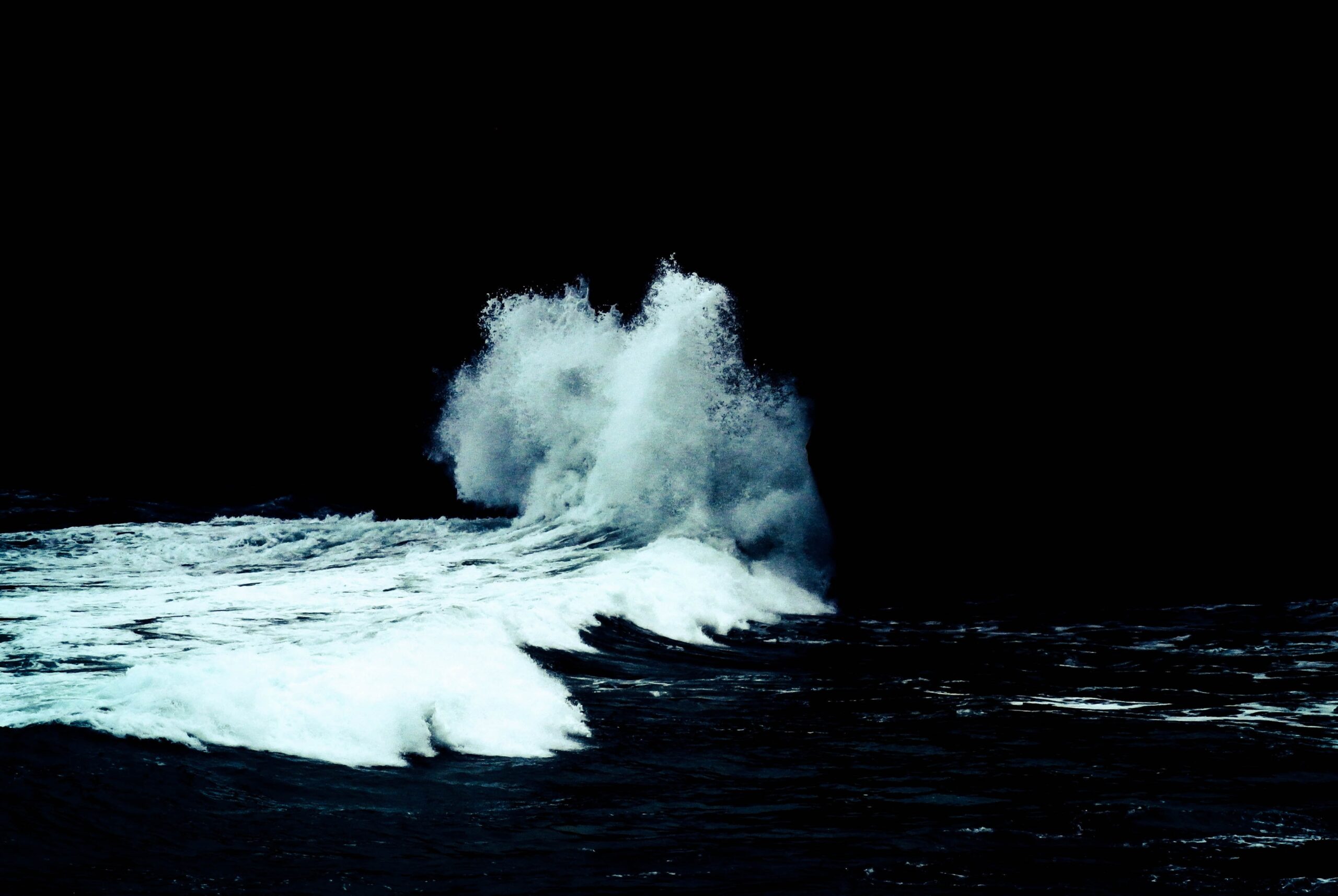Tonight the harbor is the sea: waves
thunder, detonate on rocks, slosh
over the seawall. The glaring moon
has dissolved the stars.
Few others are out, it is so cold.
If I walk to the end of the pier
in this eye-watering wind, boards shuddering
under me, might I find what to say
to my friends, mourning their daughter?
If this night has any advice,
it’s in a language I don’t understand.
My children are alive and healthy.
How can my words not hurt?
The question is a cloud of breath.
Image: Photo by Aleks Dahlberg on Unsplash, licensed under CC 2.0.
Richard Hoffman:
“Cold Requiem” is a simple poem, really.
Who ever knows what to say to the grieving? It’s the arrogance of the poet to think that I might come up with something that would soothe my friends for their loss. It was all I could do to contain my own feelings about it, which were largely an inordinate sadness, since I hadn’t seen her since she was a child, a playmate of my son’s, and an outsized rage at the manner of her death: the result of an opioid addiction.
I kept trying to find a way to address this wrenching tragedy that would be a balm, a consolation, and I kept encountering the impossibility of that, along with the violence of my own emotions.
I think of the poem as a failure, the record of a failure, the attempt to make at least something of that failure, even if only a record of it.
Richard Hoffman has published four volumes of poetry, Without Paradise; Gold Star Road, winner of the Barrow Street Press Poetry Prize and the Sheila Motton Award from The New England Poetry Club; Emblem; and his latest collection Noon until Night, winner of the 2018 Massachusetts Book Award for poetry. His other books include the celebrated Half the House: a Memoir, the 2014 memoir Love & Fury, and the story collection Interference and Other Stories. He is Senior Writer in Residence at Emerson College in Boston, and the nonfiction editor of Solstice Literary Magazine.
Latest posts by Richard Hoffman
(see all)


